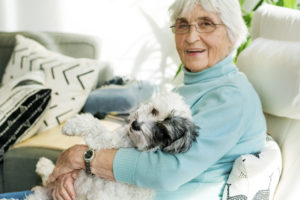Welcome to TimeFinders’ Advocacy Service
We are an award-winning and highly respected company offering practical and emotional support
to older people and their families in changing circumstances.
If the time should come when I can’t speak for myself, how will I make sure my voice is heard and my decisions respected?
After we reach adulthood, we rightly expect that people will listen to us when we make a decision or express a preference or opinion. As we become older, however, we can begin to worry whether or not this will continue. We must face the reality that there may be a time when we will no longer have the capacity or the confidence to maintain our independence and control our lives.
It is vitally important to consider our future physical and mental health and take important decisions and make suitable provision whilst we are still fit and able to do so. This may be the time to consider appointing an advocate.
If the worst were to happen, will anyone know enough about you to make the right decisions on your behalf?
Even if you have appointed a Health & Welfare Attorney, will they know your likes and dislikes, your favourite things and your most loathed, the people you love and those with whom you just can’t get on, what makes you most happy and what upsets you? Importantly, will they be aware of your thoughts and decisions on the subjects of religion, spirituality, philosophy and all the other matters which will be so fundamental when making future life-changing decisions?

Even if you are fortunate and keep reasonable health and mental capacity, there may come a time when it feels like a struggle to ensure everyone is really listening to and respecting your decisions.
The Advocacy Service
An advocate traditionally helps someone represent their own interests so they can
- Make their voice heard
- Ensure their rights are secured and upheld
- Obtain the services they need
We have carefully developed this idea and created The Advocacy Service, designed to meet all your needs as they change and offer the many different types of support you might require in later life.
The TimeFinders Advocacy Service is designed to be a preparation for the future, to be undertaken before problems arise. A TimeFinders Personal Advocate will help you to make important decisions about your future whilst you are still fit and well enough to do so and determine what you would like to happen if you become unwell or lose capacity, for example through Dementia or as a result of a fall. They will work closely with your Solicitor, Financial Adviser and Property & Financial Affairs Attorneys if you wish. They are like a surrogate family member, especially for our clients who may not have any family of their own to help them or whose family, whether through distance or other commitments, are not able to provide the dedicated support required.

A TimeFinders Advocate is able to liaise with medical and care providers to represent our client’s wishes even if they have lost capacity. Often, we work closely with a Health & Welfare Attorney if one has been appointed, but we are aware that many of our clients are ageing alone and are unwilling to burden distant family or friends with the demands this brings. Where there is no Health & Welfare Attorney in place, any medical or care decision has to be made by a Best Interest Panel which usually involves the medical staff and social services who frequently have no prior knowledge of the person under discussion.
As our clients’ Advocate, we become involved in Best Interest Panel decisions and can ensure that our clients’ wishes are fully taken into consideration. If a Health & Welfare Attorney has been appointed but is unable to attend a Best Interests Panel, perhaps because they live abroad etc, the TimeFinders Advocate is able to represent them too. This provides a powerful influence in ensuring that our clients’ wishes are fulfilled.
Whatever your capacity level or state of health, your Personal Advocate will be there to represent your wishes. They will respond to your changing circumstances and, when the time comes, continue to provide all Advocacy and Continuing Support Services up to and including organising end of life care.
Key benefits
- Advice and guidance in helping you plan for your future
- Support to ensure that your decisions are implemented and your wishes respected
- Liaison with your health and welfare professionals
- Professional oversight of your care
- Protection your best interests
- Six-monthly reviews
- First point of contact in an emergency
“TimeFinders has been able to provide the very best service to vulnerable people
at a very difficult time in their lives.”
A.P., Solicitor, Reading
The Advocacy Service is particularly valuable for people who: –
Are ageing alone or have family living far away
- Do not want to burden family or friends with the responsibilities of Health & Welfare Attorneyship
- Want support to make decisions before they might lose capacity
- Increasingly need support which is beyond the remit of their financial and legal advisers
- Are managing a change in health
- Have been recently bereaved
- Have family who are busy and preoccupied with their own lives
- Need patience and understanding and someone to work at their own pace
- Have lost confidence or just feel that they need an independent advocate on their side.
Having lost my husband, and having no family, I found myself in a very lonely place. Finding TimeFinders, who helped me plan out my life as years advance, and knowing that there’s always someone there if I need them has given me peace of mind and the strength to carry on as my husband would have wished.”
Mrs S.D. – Advocacy Client, Berkshire
Advocacy in Action – two case histories
“Someone who can help you every step of the way, a caring professional – your very own Guardian Angel”
N.T., Independent Financial Adviser, Surrey





 Are ageing alone or have family living far away
Are ageing alone or have family living far away